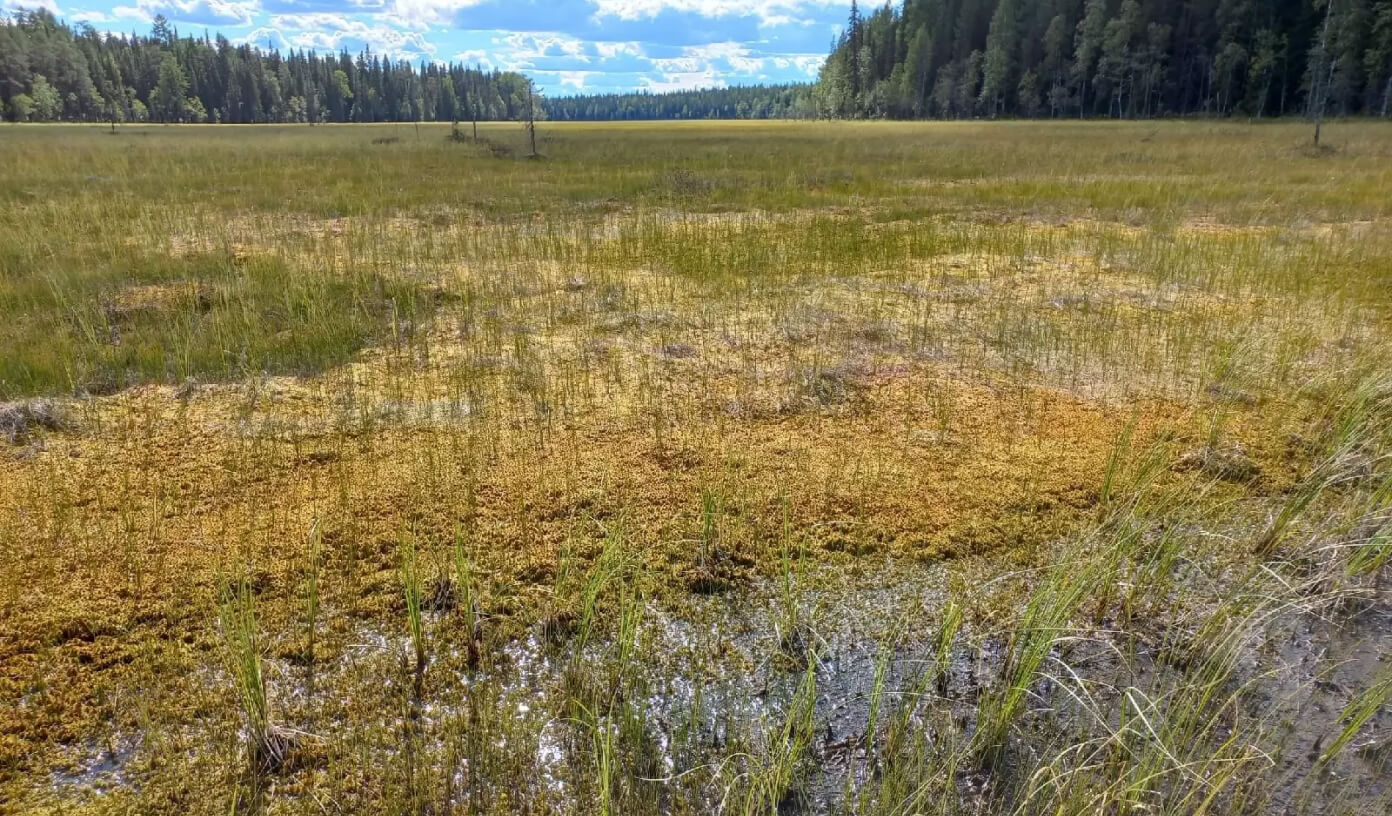12.09.2022
Scientists recognise the ecological value of Arkhangelsk’s Sebbolot
The Northern Territory is home to many rare and endangered species listed in the regional and federal Red Data Books. Such areas contribute significantly to the stabilisation of the planet’s climate processes.
 Photo by: Tatiana Parinova, Victor Mamontov / WWF Russia
Photo by: Tatiana Parinova, Victor Mamontov / WWF Russia
Scientists have confirmed the ecological value of Sebbolot, a remote stretch of taiga and wetlands in the Pinezhsky District of the Arkhangelsk region. Such a conclusion was made by the participants of the scientific expedition of the Russian branch of the World Wildlife Fund (WWF), the press service of the organization reported.
In the course of the research specialists traveled more than 230 kilometres, studying flora and fauna, landscapes and soils. In addition to representatives of WWF Russia, scientists from the Northern Arctic Federal University (NArFU) and the Federal Research Centre for Integrated Arctic Studies participated in the expedition.
“The expedition confirmed that the area is home to many rare and endangered species in both the regional and federal Red Data Books.
In particular, the populations of the rogue peony, northern orchids — the leafless orchid, the lady’s slipper orchid were noted. There are nesting places of Bean Goose, many rare birds of prey, flying squirrel and other red-listed species”, — said Tatiana Parinova, Associate Professor of the Department of Biology, Ecology and Biotechnology of the Higher School of Natural Sciences and Technology of SAFU.
The area is ecologically important for maintaining the hydrological regime, the fullness of rivers and water quality in the surrounding areas, as well as contributing to climate stabilization, experts say.
During the expedition, scientists were also able to survey areas of untouched forest adjacent to Sebbolot, which are protected from logging by an agreement between the tenant of these lands, represented by Titan Group, and the World Wildlife Fund.
“In addition to other forest values, traces of wild reindeer have been found here. Therefore, we propose to preserve the habitats of the critically endangered species in the Arkhangelsk region,” said Andrey Kopytov, expedition leader and project coordinator of the World Wildlife Fund office in the Arkhangelsk region.
Over the past 20 years, wild reindeer numbers in Arkhangelsk region have declined due to poaching, destruction of suitable habitats and climate change. Small areas of reindeer remain only in a few districts of the region.
In addition to the expedition to Sebboloto, the World Wildlife Fund and the Association for the Conservation and Development of Natural and Cultural Heritage “Voices of the North” decided to support seven projects by residents of the Pinega district of the Arkhangelsk region.
Cover photo: Tatiana Parinova, Victor Mamontov / WWF Russia



























Comments